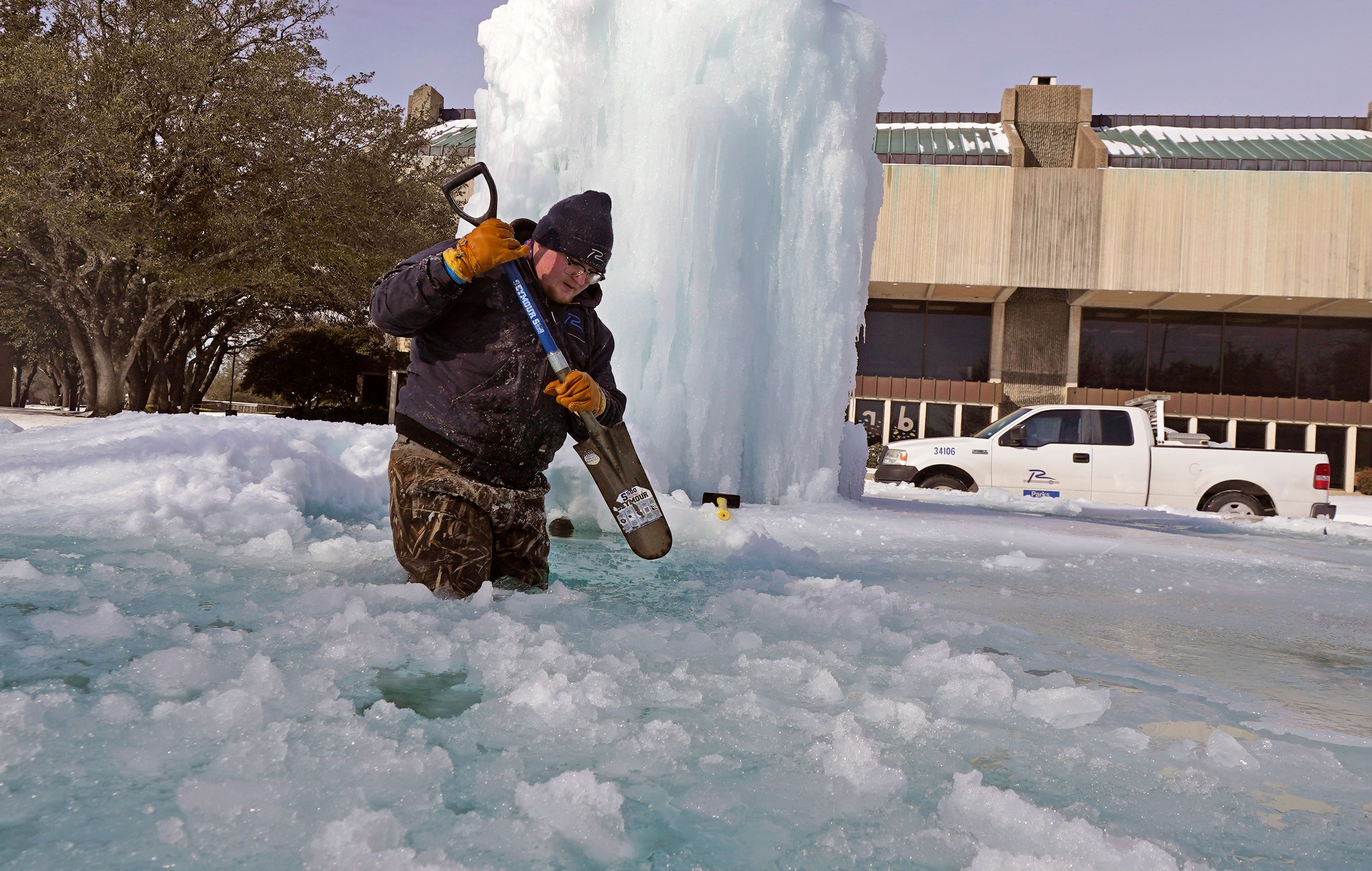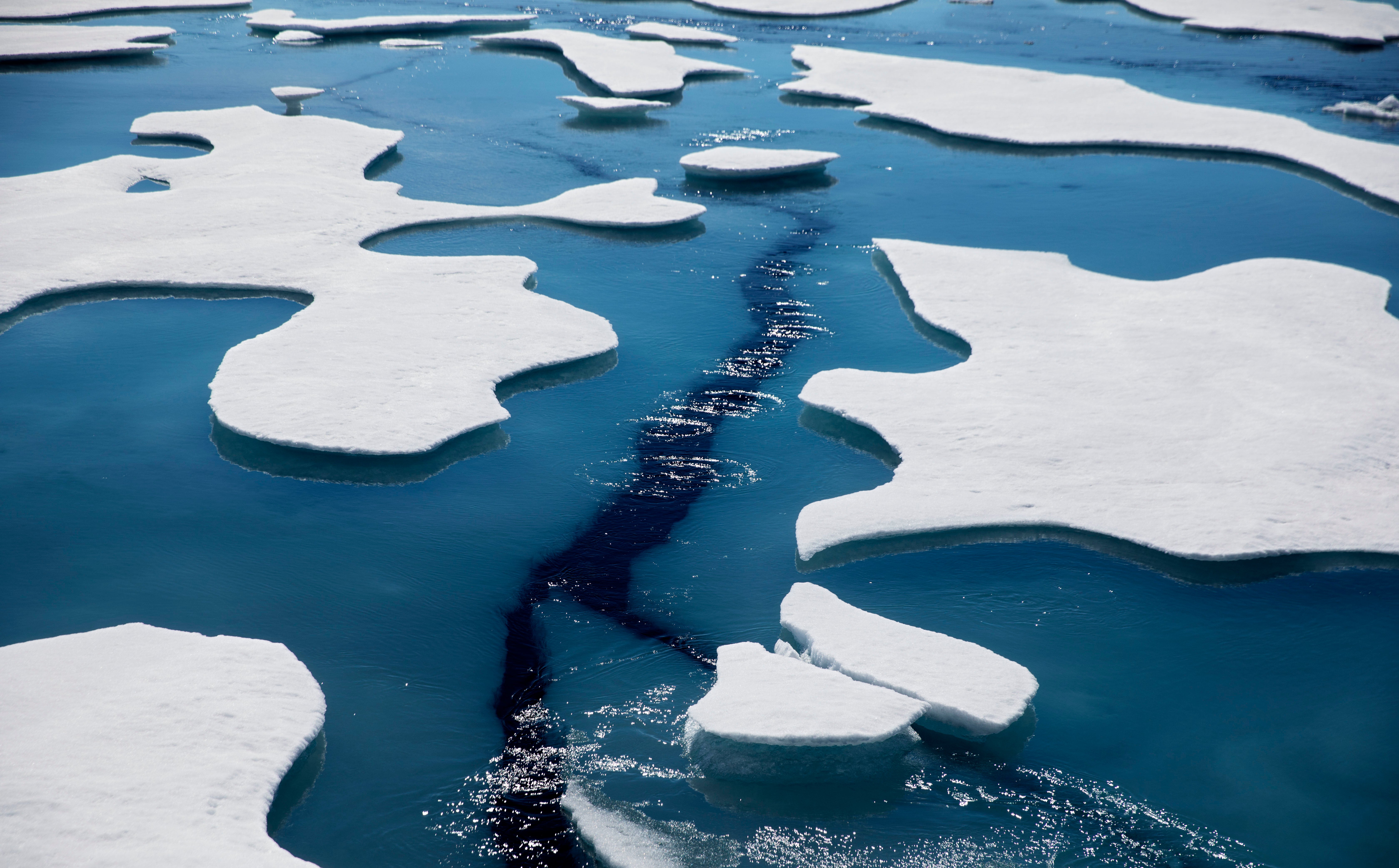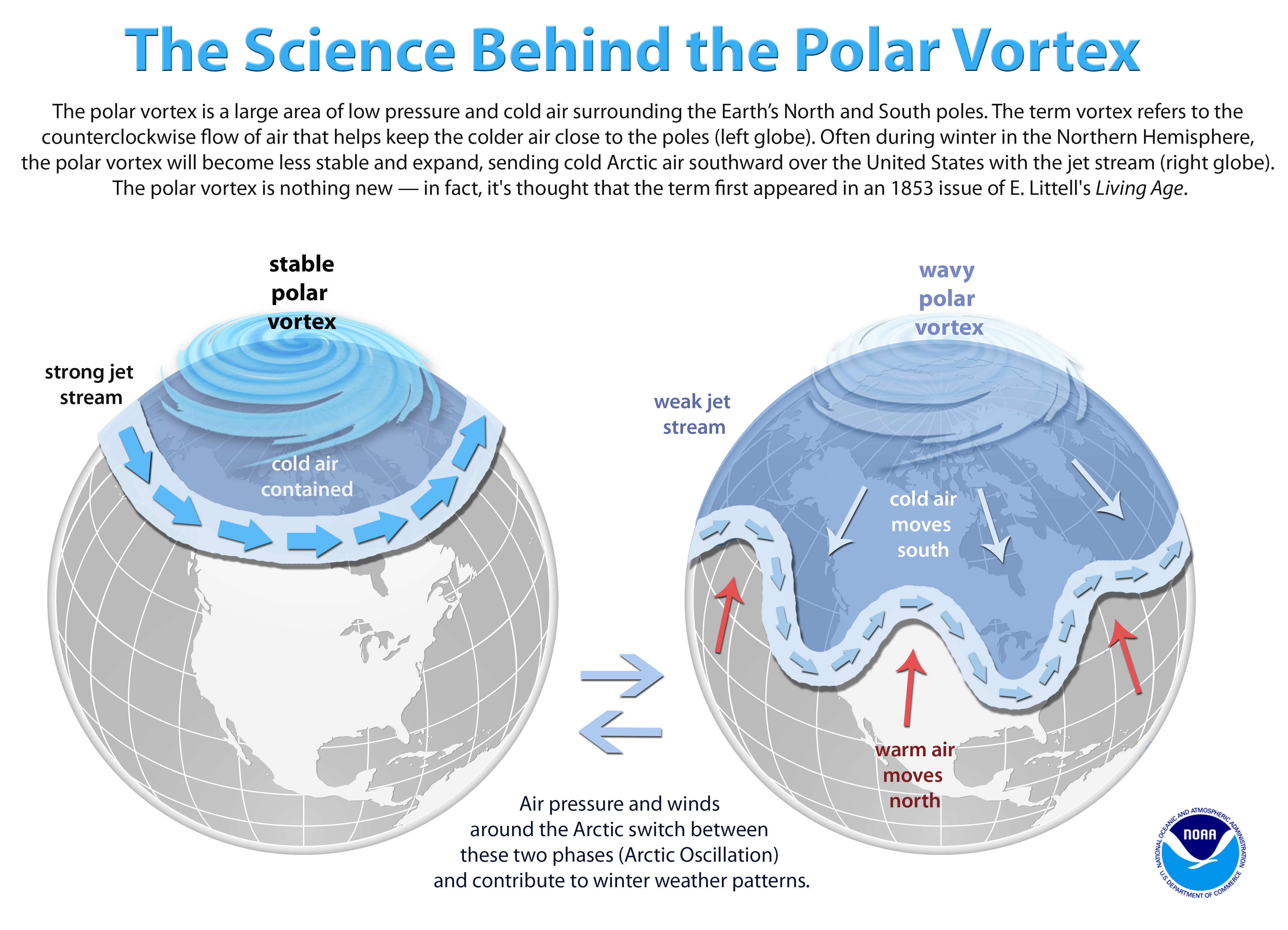Why we can’t yet say with certainty whether the Texas cold snap is linked to global heating
- Why do some scientists suspect there could be a link between global warming and cold snaps?
- Why is there still debate around the topic?
- How are US cold snaps likely to change in the future?

An unusual winter storm has swept across the southern US in recent days, causing freezing temperatures and leaving 4.2 million people in Texas without power.
The cold weather was driven by an “Arctic breakout”, according to the US National Weather Service.
Some have suggested that there could be a link between the current cold snap and global heating. This is because some scientists have theorised that the rapid heating of the Arctic could be linked to episodes of extreme weather in mid-latitude regions such as North America and Europe.
However, other researchers have urged caution when attributing individual cold events to global heating. This is because the potential links between Arctic warming and episodes of extreme cold in mid-latitude regions are still being hotly debated among scientists. And, in general, evidence suggests that global warming will likely lead to milder winters in the mid-latitudes.
The Independent walks through the key questions surrounding the topic.
Why do some scientists suspect there could be a link between global warming and cold snaps?
There is firm evidence to suggest that the Arctic is heating up at a rate that is more than twice as fast as the global average. This phenomenon is known as “Arctic amplification”.
The reasons Arctic amplification is happening are complex. One of the chief drivers is the rapid disappearance of Arctic sea ice. Warming of the Arctic Ocean and the atmosphere above is causing ice to melt at an astonishing rate. Bright white ice reflects away sunlight, and so, once it disappears, the exposed dark ocean begins to absorb more of the sun’s rays, heating the ocean further. This leads to more ice melt.

Arctic Sea Ice (Copyright 2017 The Associated Press. All rights reserved.) Some researchers have suggested that the rapid heating of the Arctic could be linked to episodes of unusual cold in mid-latitude regions such as North America and Europe.
One theory is that Arctic heating could be interfering with the jet stream – a band of strong winds that sit high up in the atmosphere. The movements of the jet stream play a major role in the weather experienced in mid-latitude countries such as the US and the UK.
The strength of the jet stream is determined by the difference in temperature between the Arctic to the north and the tropics lying further south, says Dr Paulo Ceppi, a lecturer in climate science at Imperial College London.
“The bigger this contrast between the Arctic and the tropics, the stronger the jet stream intensity,” he tells The Independent.
“And so, with the Arctic warming very rapidly, this temperature difference is getting smaller and the idea is it could lead to a weakening of the jet stream.”
As the jet stream weakens, it could become more “wavy” – tipping the balance in favour of more extreme weather in the mid-latitudes, according to the theory. A wavier jet stream could, for example, allow warmer air to travel further north and cool Arctic air to plunge further south towards the US.
Another idea for how warming may be connected to episodes of extreme cold is through disturbances to the “stratospheric polar vortex” – a large area of low pressure and cold air that sits around 50km above the Arctic.

The science behind the polar vortex (NOAA) When the polar vortex is disturbed, it can weaken. Under certain circumstances, this can cause the cold air that the polar vortex holds to spill further south and towards countries like the US. This is demonstrated on the diagram above.
The polar vortex can be disturbed through natural factors. However, research has found that periods of weak polar vortex in January and February have become more frequent over the past few decades – suggesting a possible role for climate change.
Why is there still debate around the topic?
The theory that Arctic heating could be causing the jet stream to weaken is disputed by some scientists, including Dr Ceppi.
“I think there are two main weaknesses,” he says of the suggestion.
“Firstly, that there is perhaps no observational evidence. From our data from the last two decades, we don’t see a clear weakening of the jet stream, as the argument proposes. That could be because we don’t have enough data yet. But, for me, with the observations that we have, we can’t draw any conclusions.”
The second is there’s “little theoretical evidence” that a wavier jet stream would necessarily lead to more extreme weather in mid-latitude regions, he says.
Prof Tim Woollings, a climate scientist at the University of Oxford and author of Jet Stream: A Journey Through Our Changing Climate, agreed that the theory should be interpreted cautiously.
“It’s an interesting idea, but there’s not a lot of evidence for it,” he tells The Independent. “If anything, the evidence has got weaker in recent years.”
A study published in 2019 found that Arctic sea ice decline could have a “minimal influence” on severe winters in the mid-latitudes.
Study author Prof James Screen, an Arctic climate scientist from the University of Exeter, says: “I don’t think we can make any confident connection between climate change and increased cold events.”
He adds that, with the Arctic rapidly heating up, it could be the case that the current Arctic outburst affecting Texas may have been made milder by climate change.
“The Arctic has warmed dramatically and Arctic air is much warmer than it used to be,” he says. “A cold air event today is less severe than the same event would be in a world without Arctic warming.”
Posting on Twitter, Dr Zeke Hausfather, a climate scientist and director of climate and energy at the Breakthrough Institute in California, said “there was not much evidence that climate change is making cold extremes more common”.
“One of the challenges of being on the frontier of science in complex systems is that we have to live with a lot of uncertainty,” he said. “For the time being we could all use a bit more restraint around arguing either that occasional cold weather disproves or is caused by global warming.”
How are US cold snaps likely to change in the future?
Given the ongoing scientific debate surrounding the possible links between Arctic warming and cold snaps, it is difficult to make firm projections for the future.
However, in general, evidence suggests that global warming will likely lead to milder winters in the mid-latitude countries such as the US and the UK.
Prof Screen says that, in his opinion, “we should expect a decrease in cold events and their severity” in the future.
The impact of Arctic warming on mid-latitude cold extremes may become more apparent in the future, he says. However, even if it does, this impact could be counteracted by global warming, which is generally causing winters to become less severe.
“In climate projections, the balance of these factors is firmly in favour of warming,” he says.
Join our commenting forum
Join thought-provoking conversations, follow other Independent readers and see their replies
Comments
Bookmark popover
Removed from bookmarks